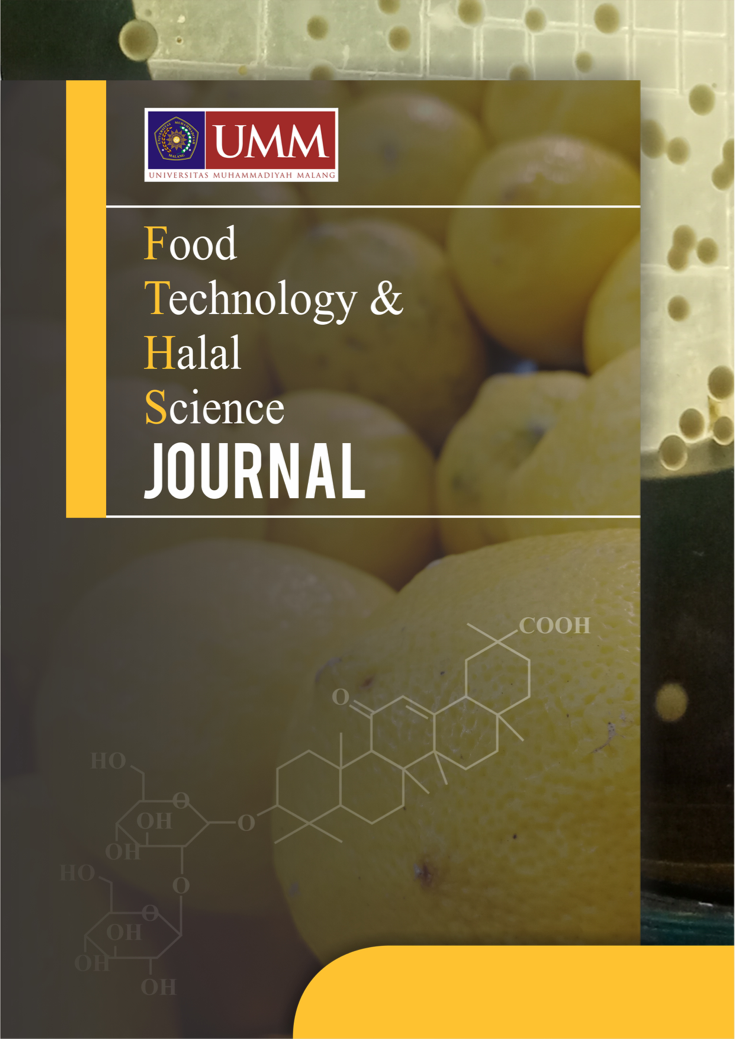Assessment organic production of kyuri farms focuses on microbiological contamination with good agricultural practices (GAP) standard criteria.
DOI:
https://doi.org/10.22219/fths.v1i1.7546Keywords:
GAP, Microbiology, FarmersAbstract
The assessment was based on interviews result and experiment laboratory assay with the three organic kyuri farmers in Saga City focus prevention activities of microbiological contamination. Each farm the 21 samples (soil, kyuri seedlings, natural fertilizer, and water resource) were taken during six times visited or one cultivation production cycle. The object was a focus on hygiene attribute (coliforms) and safety (Salmonella spp and E. coli O157: H7), the evaluation activities of farmers' food safety practice used GAP standard as an indicator. The laboratory results in both of three kyuri farmers, coliforms ranging from 3.0 to 4.7 log 10 cfu/g, E.coli O157: H7 was detected only at the farm 3 and Salmonella spp was not detected. The evaluating activities through self-assessment tool describe all three farms have two major hazards focus, one is chemical control such as synthetic substances uses, pesticide residue and chemical contaminations, two is a microbial hazard due to contact with raw material, and natural characteristics. The overall study, the farmers in the middle level of application food safety practice.
Downloads
Downloads
Published
How to Cite
Issue
Section
License
Authors who publish with this journal agree to the following terms:
- Authors retain copyright and grant the journal right of first publication with the work simultaneously licensed under a Creative Commons Attribution License that allows others to share the work with an acknowledgement of the work's authorship and initial publication in this journal.
- Authors are able to enter into separate, additional contractual arrangements for the non-exclusive distribution of the journal's published version of the work (e.g., post it to an institutional repository or publish it in a book), with an acknowledgement of its initial publication in this journal.
- Authors are permitted and encouraged to post their work online (e.g., in institutional repositories or on their website) prior to and during the submission process, as it can lead to productive exchanges, as well as earlier and greater citation of published work (See The Effect of Open Access).










